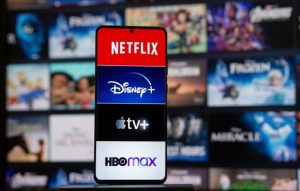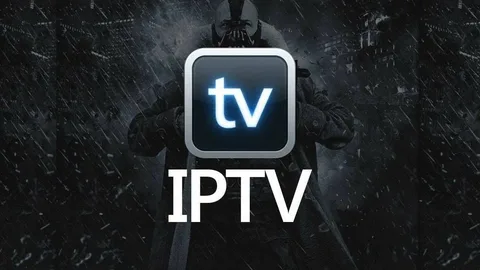Entertainment
Impact of Streaming Services on Entertainment

Streaming services have revolutionized the entertainment industry by providing increased access to entertainment content for wider audiences. Gone are the days of having to wait for a specific time slot to watch your favorite show or movie. With streaming services, viewers can access a vast library of content at their fingertips, anytime and anywhere. This level of convenience has opened up the world of entertainment to a much larger audience, allowing people from all walks of life to enjoy their favorite shows and movies.
Additionally, streaming services offer a wide variety of entertainment options, catering to diverse tastes and preferences. Whether you’re in the mood for a comedy, drama, action, or documentary, there is something for everyone on streaming platforms. This variety ensures that viewers never run out of options and can always find something new and exciting to watch.
Convenience of on-demand viewing

Image by : Yandex
The convenience of on-demand viewing has greatly enhanced the entertainment experience for consumers. No longer are we tied to the constraints of traditional TV schedules or forced to sit through commercials. With streaming services, viewers have the freedom to watch what they want, when they want, without any interruptions.
Streaming services also offer easy access to diverse entertainment options, making it simple for viewers to discover new content and explore different genres. Whether you’re a fan of classic films or the latest TV series, streaming platforms provide a seamless and user-friendly experience that caters to your individual preferences.
Variety of platforms to choose from
The entertainment industry has seen a surge in the number of platforms available for consumption, thanks to streaming services. From popular platforms like Netflix, Hulu, and Amazon Prime Video to niche services focusing on specific genres or demographics, there is a wide range of options for viewers to choose from.
These diverse platforms offer a plethora of entertainment content, ranging from blockbuster movies to original series and documentaries. This variety ensures that there is something for everyone, no matter what your interests or preferences may be. With so many options to choose from, viewers are truly spoiled for choice when it comes to entertainment consumption.
Original content production
One of the key ways in which streaming services have revolutionized the entertainment industry is through the production of original content. Platforms like Netflix and Amazon Prime Video have invested heavily in creating unique and compelling content that cannot be found anywhere else.
This influx of original content has not only boosted the diversity of entertainment options available to viewers but has also redefined the way in which we consume entertainment. With exclusive series and films that can only be found on streaming platforms, viewers are increasingly turning to these services for their entertainment needs, shifting away from traditional TV channels and cable subscriptions.
Global reach of streaming services
Streaming services have expanded the reach of the entertainment industry on a global scale, reaching audiences worldwide with their diverse content offerings. With the ability to access content from anywhere in the world, viewers are no longer limited by geographical boundaries when it comes to entertainment consumption.
This global reach has allowed streaming services to cater to a wide range of audiences, offering content in multiple languages and genres to appeal to viewers from different cultures and backgrounds. As a result, the entertainment industry has become more inclusive and diverse, reflecting the global nature of our interconnected world.
Changing viewing habits

Image by : Yandex
The rise of streaming services has led to a significant shift in viewing habits, with more and more consumers opting for on-demand content over traditional TV schedules. Gone are the days of waiting for a specific time slot to watch a show or movie – now, viewers can binge-watch an entire series in one sitting or catch up on their favorite films whenever they please.
This change in viewing habits has transformed the way we consume entertainment, giving viewers greater control over what they watch and when they watch it. With the convenience of streaming services, consumers are no longer tied to the constraints of traditional TV, leading to a more personalized and flexible entertainment experience.
Competition among streaming services
The competition among streaming services has driven innovation in the entertainment industry, leading to a diverse range of content options for consumers. Platforms are constantly vying for viewers’ attention, offering exclusive shows, movies, and documentaries to attract and retain subscribers.
This competition has resulted in a golden age of content, with streaming services producing high-quality and original programming that rivals traditional media outlets. From award-winning series to blockbuster films, viewers are spoiled for choice when it comes to entertainment options, thanks to the fierce competition among streaming platforms.
Impact on traditional media
The rise of streaming services has had a significant impact on traditional media outlets, challenging the dominance of cable TV and network channels. As more and more consumers turn to streaming platforms for their entertainment needs, traditional media sources are facing increased competition and pressure to adapt to changing consumer habits.
This evolution of entertainment consumption has forced traditional media outlets to rethink their strategies and offerings, with many networks launching their own streaming services to stay relevant in the digital age. The impact of streaming services on traditional media is undeniable, signaling a major shift in the way we consume entertainment.
Shift towards digital advertising
With the rise of streaming services, there has been a noticeable shift towards digital advertising in the entertainment industry. As more consumers flock to online platforms for their entertainment needs, advertisers are following suit, targeting specific audiences through personalized ads that cater to individual preferences.
Digital advertising on streaming services allows advertisers to reach a highly engaged and targeted audience, increasing the effectiveness of their marketing campaigns. By leveraging data and analytics, streaming platforms can deliver personalized advertising experiences that resonate with viewers, enhancing the overall entertainment experience for consumers.
Art /Entertainment
Nia Renee Hill: A Versatile Force in Hollywood
Consumer Services
WHEON Grand Theft Auto: Why It Still Rules Open World Gaming
Art /Entertainment
Cricket World Cup Streaming: Star IPTV US Is Your Best Choice

The Cricket World Cup is one of the most watched sporting events in the world, attracting millions of fans from every region. With the upcoming Cricket World Cup being hosted in India and Sri Lanka, excitement is at its peak. Fans are now looking for the best World Cup subscription that allows them to watch matches live, without interruptions, geo-restrictions, or high cable TV costs.
In today’s digital era, traditional television is no longer the only option. IPTV services have become a preferred choice for sports fans due to flexibility, affordability, and global channel access. This article explains the best way to watch World Cup matches live and why Star IPTV US stands out as a reliable IPTV service and restream panel provider for both viewers and resellers.

Why Choosing the Right World Cup Subscription Matters
World Cup matches are time-sensitive and high-intensity. Missing a key moment due to buffering, blackouts, or regional restrictions can ruin the experience. Choosing the right subscription ensures:
- Live access to all World Cup matches
- Stable streaming with minimal buffering
- Multiple sports channels covering the tournament
- Compatibility with modern streaming devices
- Cost-effective plans without long-term contracts
With matches being played across India and Sri Lanka, global fans need a solution that delivers international sports channels reliably.
Traditional TV vs IPTV for World Cup Streaming
Traditional TV Limitations
Cable and satellite TV services often come with:
- High monthly fees
- Region-locked sports channels
- Long contracts
- Limited device flexibility
In many countries, cricket channels are locked behind premium sports packages, making it expensive to watch a single tournament.
IPTV as a Modern Alternative
IPTV delivers television content over the internet. A high-quality IPTV service provides:
- Global sports channel access
- Flexible subscription durations
- Streaming on Smart TVs, Android devices, Firestick, and mobile
- Better value for money
This is where Star IPTV US becomes an ideal choice for World Cup viewers.
What Is Star IPTV US?
Star IPTV US is a premium IPTV service designed for users who want reliable access to live TV channels, especially sports. It offers thousands of international channels, including cricket and sports networks that broadcast World Cup matches.
Star IPTV US is also known as a restream panel provider, making it suitable not only for viewers but also for IPTV resellers who want to manage and distribute streams professionally.
Why Star IPTV US Is the Best World Cup Subscription
1. Live World Cup Coverage
Star IPTV US provides access to sports channels that broadcast live Cricket World Cup matches from India and Sri Lanka. This includes multiple international feeds, ensuring uninterrupted coverage throughout the tournament.
2. Flexible Subscription Plans
Unlike traditional broadcasters, Star IPTV US offers short-term and long-term subscription options, allowing users to choose based on their needs.
3. High Streaming Stability
With optimized servers and reliable infrastructure, Star IPTV US delivers stable streams, which is essential during high-traffic events like the World Cup.
4. Multi-Device Compatibility
Users can watch matches on Smart TVs, Android TV boxes, Firestick, smartphones, tablets, and laptops.
5. IPTV Restream Panel Provider
Star IPTV US also operates as a professional restream panel provider, offering scalable solutions for IPTV businesses that want to deliver World Cup streams to their own customers.
Star IPTV US Subscription Plans Explained
One-Month Subscription
The one-month plan is ideal for fans who want coverage specifically for the Cricket World Cup.
Best for:
- Viewers focused only on the World Cup
- Short-term users
- First-time IPTV customers
It provides full access to sports channels throughout the tournament without a long-term commitment.
Three-Month Subscription
The three-month plan covers the entire World Cup and additional cricket series before or after the event.
Best for:
- Dedicated cricket fans
- Users who want extra time beyond the tournament
- Better value than a single-month plan
Six-Month Subscription
The six-month plan is designed for users who watch sports regularly.
Best for:
- Fans of multiple cricket tournaments
- Users who want long-term entertainment
- Those seeking better cost efficiency
This plan includes access to sports, movies, entertainment, and international channels.
One-Year Subscription
The one-year plan offers maximum value and uninterrupted access.
Best for:
- Year-round sports viewers
- Families using IPTV daily
- Users who want the lowest monthly cost
It ensures you never miss international cricket, leagues, or major tournaments beyond the World Cup.
Star IPTV US as a Restream Panel Provider
Beyond being a viewer-focused IPTV service, Star IPTV US is also a powerful restream panel provider. This is especially important during major events like the World Cup, when demand for stable streams increases.
As a restream panel provider, Star IPTV US enables:
- IPTV resellers to manage users and connections
- Stream distribution to multiple clients
- Scalable infrastructure during high-traffic events
- Professional control panels for business growth
This makes Star IPTV US suitable for both personal use and IPTV business operations.
How to Watch the Cricket World Cup Using Star IPTV US
- Choose a subscription plan based on your needs
- Receive login credentials after activation
- Install an IPTV player on your device
- Add the provided playlist or login details
- Open sports channels and watch matches live
The setup process is simple and works across multiple devices.
Internet Requirements for Smooth Streaming
To enjoy World Cup matches without buffering:
- Stable broadband or fiber connection recommended
- Minimum 10 Mbps for HD streaming
- Higher speeds for Full HD or multi-device use
Star IPTV US is optimized for performance, but a good internet connection enhances the experience.
Why IPTV Is Ideal for the India and Sri Lanka World Cup
With matches hosted across multiple cities in India and Sri Lanka, broadcasting rights differ by region. IPTV removes these limitations by offering global access to sports channels under one subscription.
This is especially useful for:
- Overseas cricket fans
- Expats living abroad
- Users who want multiple language feeds
- Fans avoiding expensive regional broadcasters
Final Thoughts
If you are searching for the best World Cup subscription to watch matches live, IPTV is the most flexible and cost-effective solution. Among available options, Star IPTV US stands out due to its stable streaming, flexible plans, and role as a trusted restream panel provider.
Whether you choose a one-month plan for the World Cup or a one-year subscription for continuous entertainment, Star IPTV US provides reliable access to live cricket, international sports, and global channels.
For cricket fans who want uninterrupted coverage of the World Cup in India and Sri Lanka, Star IPTV US offers a complete and dependable streaming solution.
-
Business3 years ago
Cybersecurity Consulting Company SequelNet Provides Critical IT Support Services to Medical Billing Firm, Medical Optimum
-
Business3 years ago
Team Communication Software Transforms Operations at Finance Innovate
-
Business3 years ago
Project Management Tool Transforms Long Island Business
-
Business2 years ago
How Alleviate Poverty Utilized IPPBX’s All-in-One Solution to Transform Lives in New York City
-
health3 years ago
Breast Cancer: The Imperative Role of Mammograms in Screening and Early Detection
-
Sports3 years ago
Unstoppable Collaboration: D.C.’s Citi Open and Silicon Valley Classic Unite to Propel Women’s Tennis to New Heights
-
Art /Entertainment3 years ago
Embracing Renewal: Sizdabedar Celebrations Unite Iranians in New York’s Eisenhower Park
-
Finance3 years ago
The Benefits of Starting a Side Hustle for Financial Freedom


































